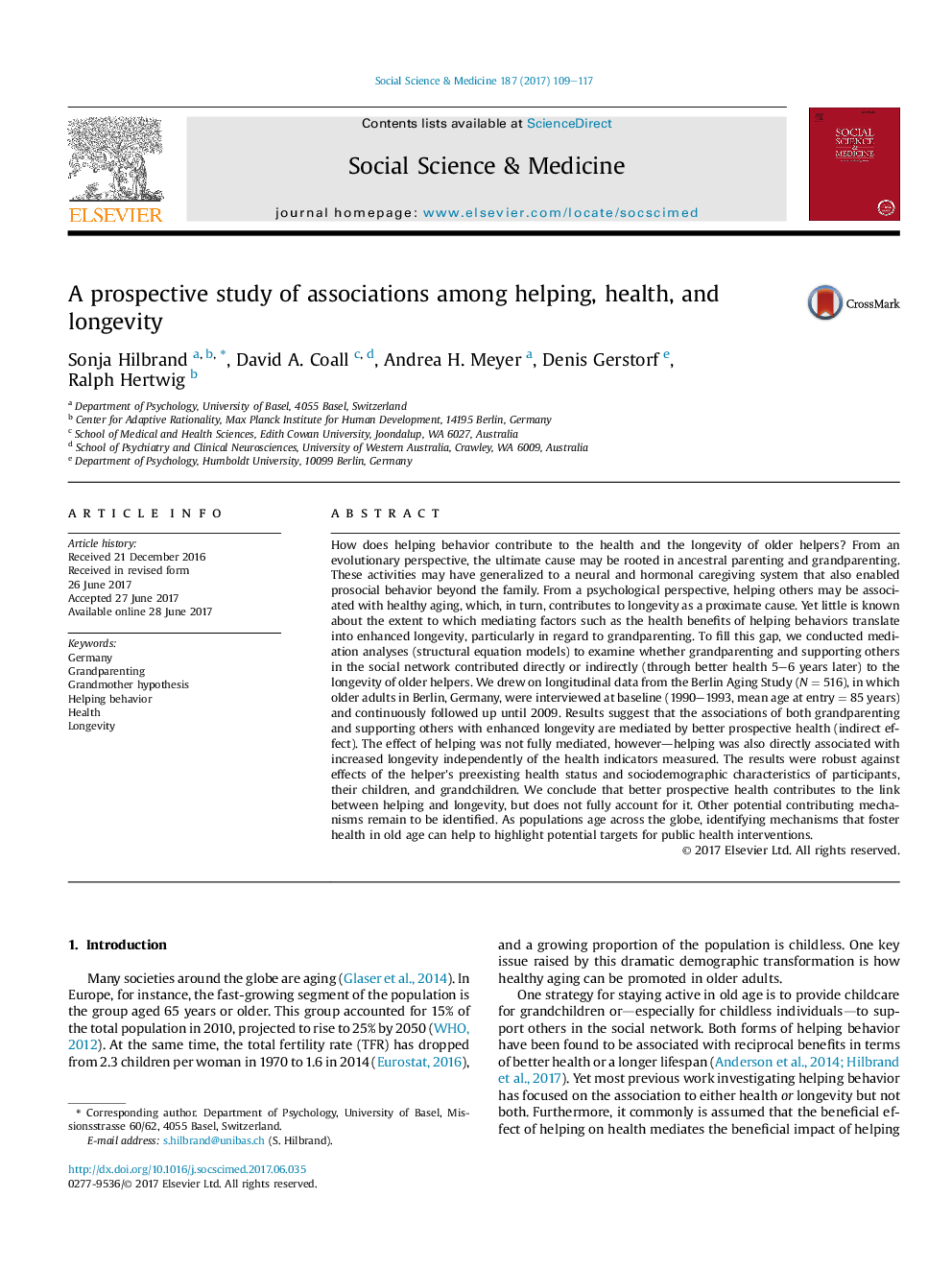ترجمه فارسی عنوان مقاله
یک مطالعه آینده نگر از ارتباط بین کمک، سلامت و طول عمر
عنوان انگلیسی
A prospective study of associations among helping, health, and longevity
| کد مقاله | سال انتشار | تعداد صفحات مقاله انگلیسی |
|---|---|---|
| 130143 | 2017 | 9 صفحه PDF |
منبع

Publisher : Elsevier - Science Direct (الزویر - ساینس دایرکت)
Journal : Social Science & Medicine, Volume 187, August 2017, Pages 109-117
ترجمه کلمات کلیدی
آلمان، پدربزرگ فرضیه مادربزرگ، کمک به رفتار، سلامتی، طول عمر،
کلمات کلیدی انگلیسی
Germany; Grandparenting; Grandmother hypothesis; Helping behavior; Health; Longevity;

